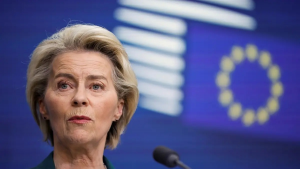Egypt's supply ministry said Sunday it set up a committee to put "fair prices" for 10-15 strategic and basic commodities after annual inflation reached five-year highs in November.
Prices are not compulsory except for rice, but there would be store inspections across the country with possible legal action to be taken against those who do not adhere to the prices, the statement showed.
Egypt's annual urban consumer inflation rate surged to a five-year high of 18.7% in November. The figure, up from 16.2% in October, was the highest since December 2017, when it hit 21.9%.
Higher prices came after a currency devaluation in October and continued restrictions on imports.
Earlier in November, Egypt’s cabinet issued a decree penalizing vendors who hoard or stock up on rice with at least one year in prison and a fine between $4,056 (EGP 100,000) and $40,569 (EGP 1 million) in an effort to avoid any shortages of the “strategic commodity.” The decree is effective for three months.
The cabinet also set prices to be sold at no more than EGP 18 back then.
Minister of Supply and Internal Trade Ali Moselhi told local media last month that Egypt’s rice production is sufficient to cover 100% of its consumption, highlighting that the country produces 3.5 million tons of rice and consumes 3.2 million tons.
Efforts to support economy The International Monetary Fund approved on Friday a 46-month, $3 billion financial support package for Egypt that aims to tap into additional funding of about $14 billion.
The package entails "a durable shift to a flexible exchange rate regime, monetary policy aimed at gradually reducing inflation, fiscal consolidation to ensure downward public debt trajectory while enhancing social safety nets to protect the vulnerable," the IMF statement showed.
Egypt's Monetary Policy Committee of the Central Bank of Egypt (CBE) will meet on Thursday to review its key interest rates following Fed's decision to raise interest rates by 50 basis points.
Since March, the CBE rose interest rates by a total of 5% or 500 basis points and has devaluated the Egyptian pound against the US dollar by about 15% during the month then by 17% in October.
In a statement on Saturday, the cabinet said the Egyptian central bank plans more efforts to “control inflation and ensure price stability,” improve its monetary policy’s efficiency and “raise the efficiency and flexibility of the exchange rate market."









